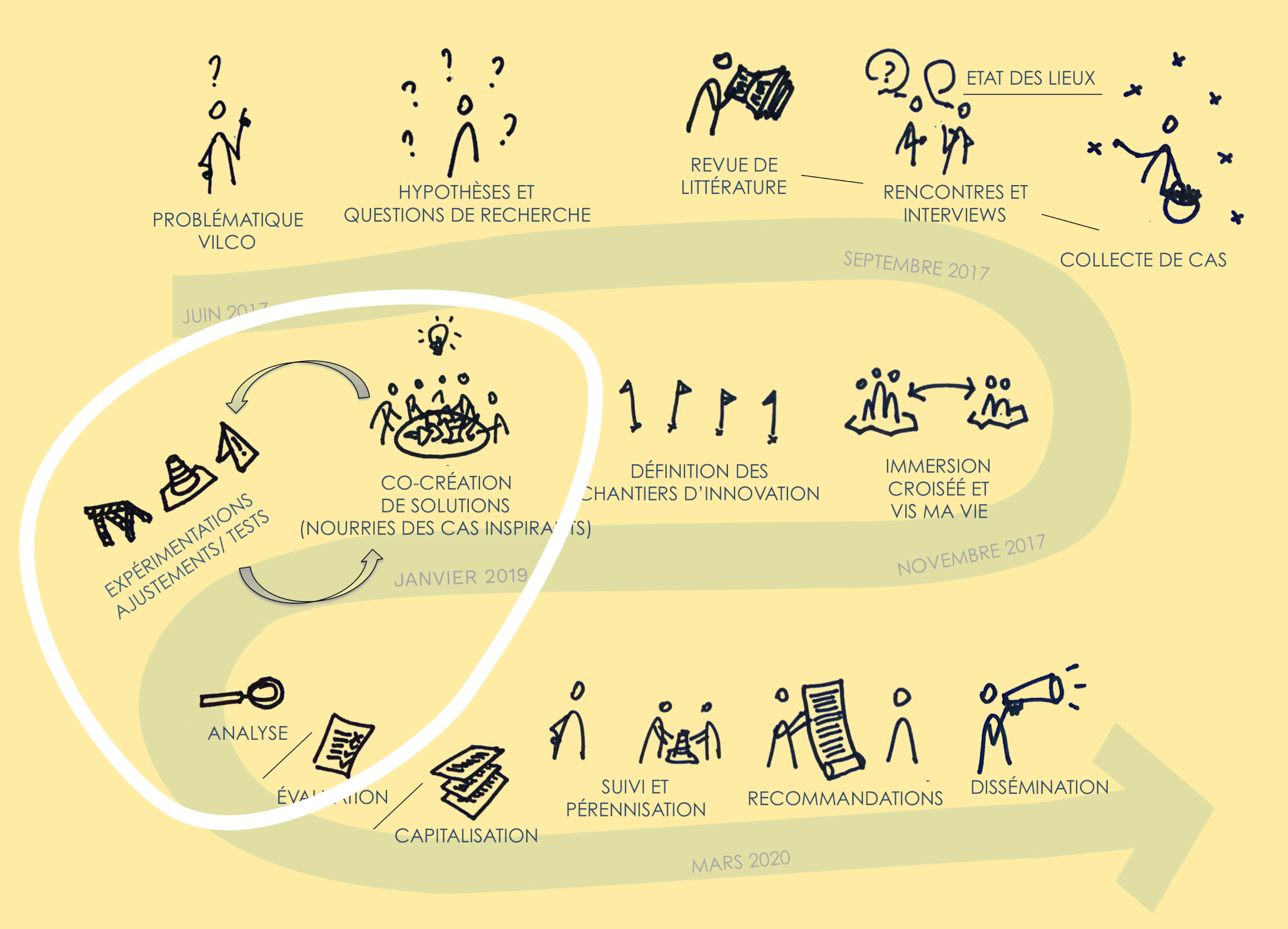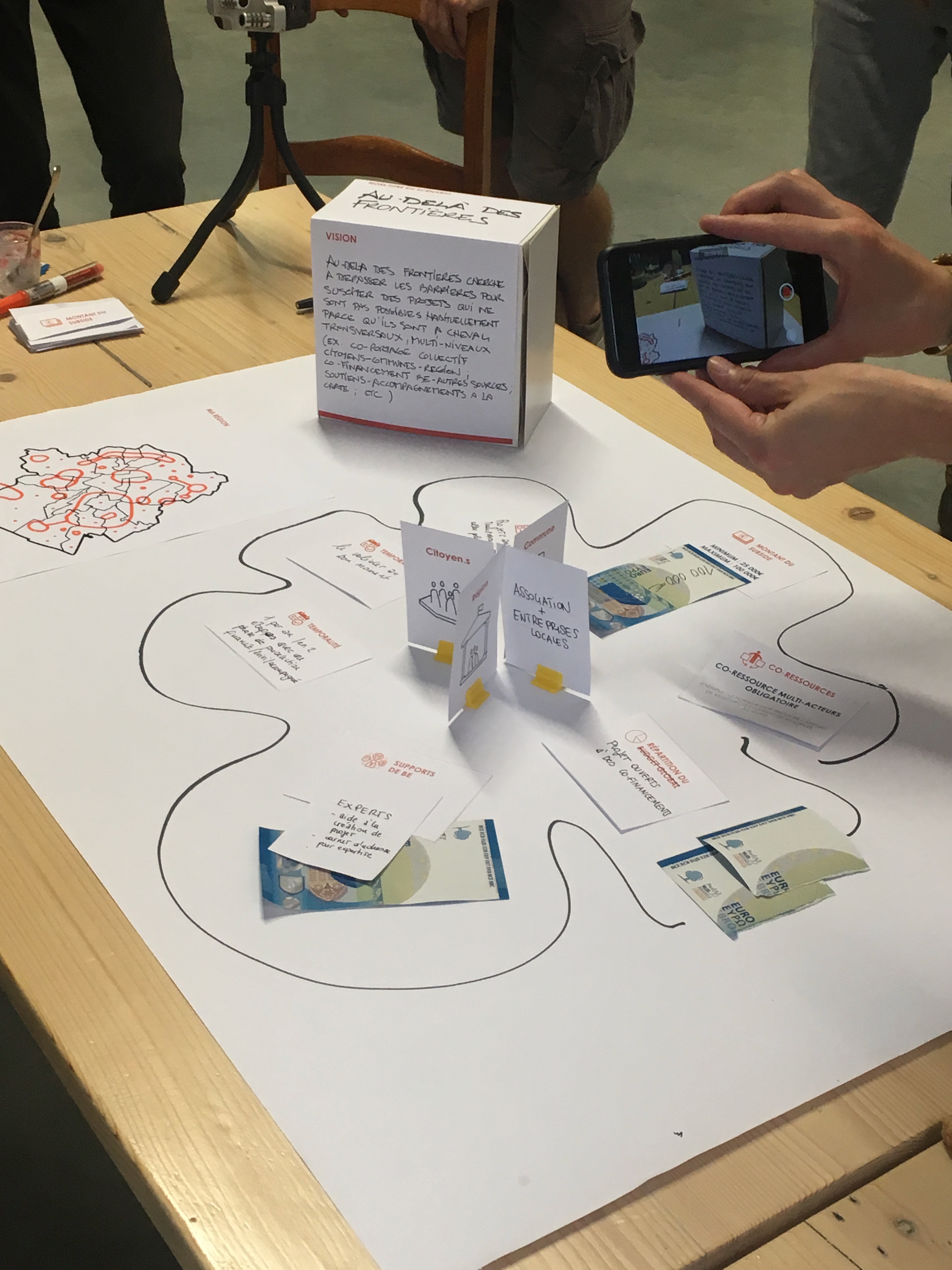VILCO
Strategic Design Scenarios
How could local authorities and citizens better collaborate to foster resilient projects in favor of the environment?
Brief
How might public authorities and citizens’ collectives better collaborate to develop the resilience of local initiatives in favor of the environments?
Many citizen initiatives have taken place in the Brussels area. They are made of all shapes, types, sizes with diverse and mixed ambitions. They take part in building common goods for the neighbourhood, to better the city and to strengthen urban resilience. Despite their growth, these initiatives are faced with many turbulences and challenges which endanger them.
On their side, municipalities and the Region have invested in developing environmental policies and helping out initiatives on a daily basis as well as through more structured programmes such as the local Agenda 21, etc. However the local powers are still feeling their way along with regards to interacting and creating collaborations with these new citizen organisations.
The project aims at inventing new innovative shapes and tools to better this collaboration. It also experiments with different solutions within living labs in order to improve how to collectively build the city.
Role
Contributed to the VILCO action-research programme by conducting design research and fostering community engagement during the experimentation phase (6 months), co-designing and testing local solutions to improve citizen-local authority collaboration in Brussels. This involved the design and creation of workshops and resources (game, survey, manuals) to equip researchers and citizens.
Partners
VILCO was a 4 year long program and is a partnership between public
actors, specialists in participatory process, designers and scientifics:
Brulocalis, Bruxelles environnement, 21 Solutions, Fondation pour les
Générations Futures, Strategic Design Scenarios.
Action-research
At VILCO, I played a central role during the experimentation stage, co-designing solutions and testing them in real-world settings with participants. Collaborating with five living labs across various boroughs of the Brussels region, we facilitated workshops to prioritise intervention spaces and from an initial list of 34 proposals, we advanced 15 projects, which were co-developed and tested with local stakeholders and citizens.
Our choice of experiments centred around the following themes:
- Civic Engagement: How might we foster collaboration between citizens and local authorities by reducing administrative barriers?
- Participatory Budgeting: How might we expand citizens involvement in the decision-making process for public spending?
- Pooling Resources: How might we enable coordination across boroughs or local associations to identify and share resources effectively?
- Communication Skills: How might we empower citizen collectives to better articulate and promote their initiatives?

Experimentation nº6:
Rethinking budget’s distribution for local action and urban resilience
What did we tested?
At SDS, we developed this project for the Ministry of the Environment in Brussels to explore innovative ways to allocate budgets for local proposals. I led the design and facilitation of the session where civil servants, local association founders, and public actors co-created their ideal budget distribution system. Participants worked in mixed groups to:
- Create a vision using metaphors (e.g., a web of resources).
- Define principles to make their vision actionable.
- Simulate and debate their system with fake money, stakeholders, and resources cards.
- All participants played back their scenarios and displayed barrier or opportunities notes to inform the future design of solutions
What came out of it?
The session's outcomes influenced the region's decision to allocate the majority of the budget to resources, offering structured support to local initiatives. This approach not only encouraged more citizens to submit proposals but also ensured they felt well-supported and equiped throughout the process.


